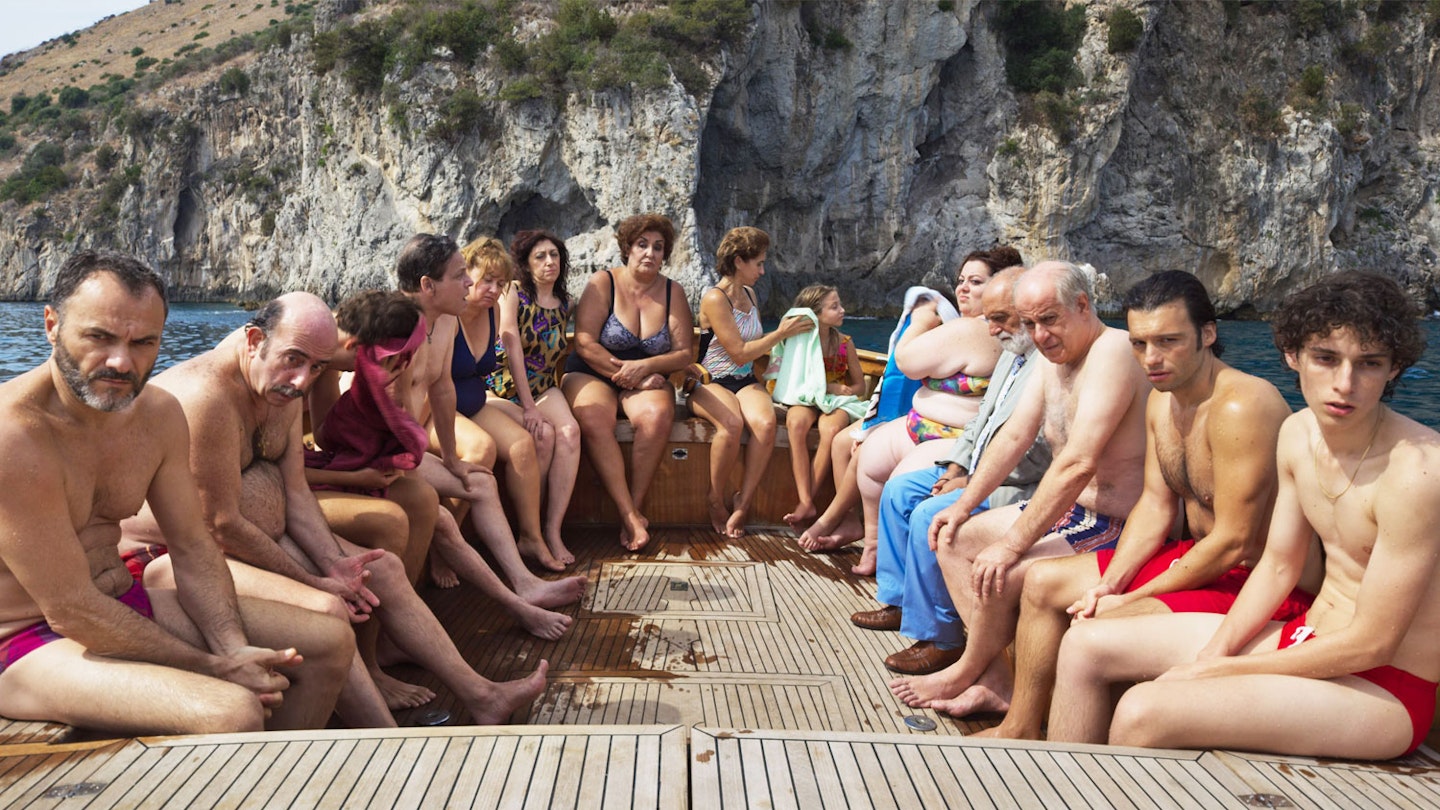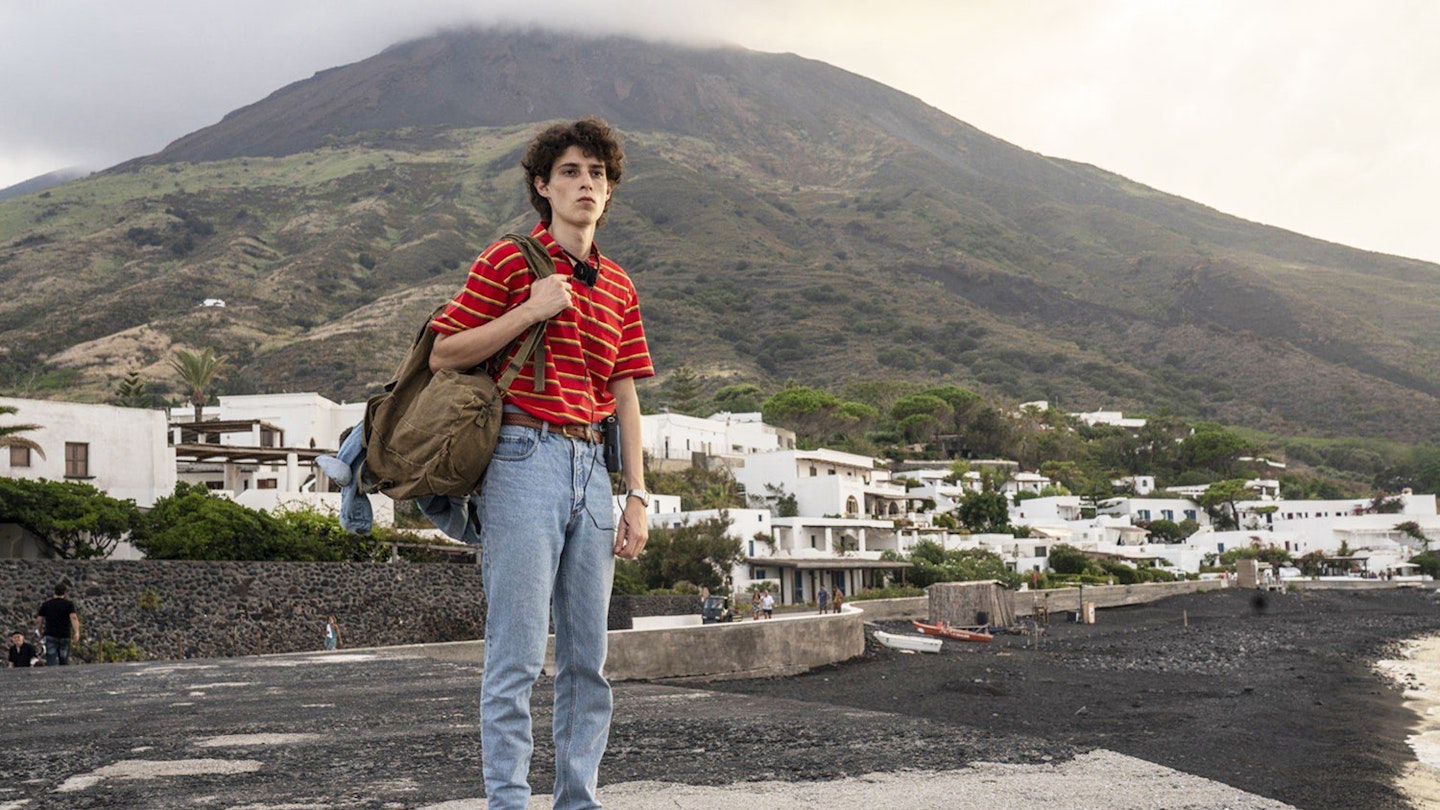There’s an explosion of colour in The Hand Of God, director Paolo Sorrentino’s brazenly autobiographical love letter to the Italy of his youth, and a reckoning with the childhood experiences that changed his life. There’s an adorable breeziness to the first half, where everything is bright and everyone is fabulous, where Italy is to die for, and where familial banter takes no prisoners. Hormonal teenage boy Fabietto Schisa (Filippo Scotti) serves as Sorrentino’s fictional avatar, navigating this beguiling eco-system, and it’s an idiosyncratic, idyllic coming-of-age, to some extent recalling Bernardo Bertolucci’s Stealing Beauty. For quite some time, not much happens, and doesn’t need to: life just drifts by, and it’s a pleasure to behold, Sorrentino in love with everybody’s faces, and flooding it all with romantic, rose-tinted glasses.

Or does he? There are cracks. Some of these people are damaged, and some less obviously than others. More so as the years pass. There is failure and disappointment and weariness. “Don’t look at me,” says an older lady. “There’s nothing to see.” Then, around halfway through, paradise is punctured, as tragedy invades the bliss, and Fabietto, thrown a crippling curveball, must grow up quickly. From there, the colour dials down and things change course, as he learns some life lessons from an eclectic, eccentric parade of unlikely role models who hand down their own experiences to this curious and malleable kid.
This is Sorrentino’s Roma, to some degree a portrait of the artist as a young man, but also a picture-perfect take on a time and a place. By the end, you do feel like you’ve got to know 1980s Naples, got to feel it, smell it, taste it, and you certainly get to know the adolescent Sorrentino, on the way to finding himself. At one point, Federico Fellini is in town making a film, and someone overhears him saying that cinema means nothing, that it’s just a distraction. That is patently untrue. In moments, The Hand Of God is simultaneously absurd and profound. Considering what goes down, it’s not the emotional hitter it might like to be, but there’s no doubting the huge, broken heart driving it all.
